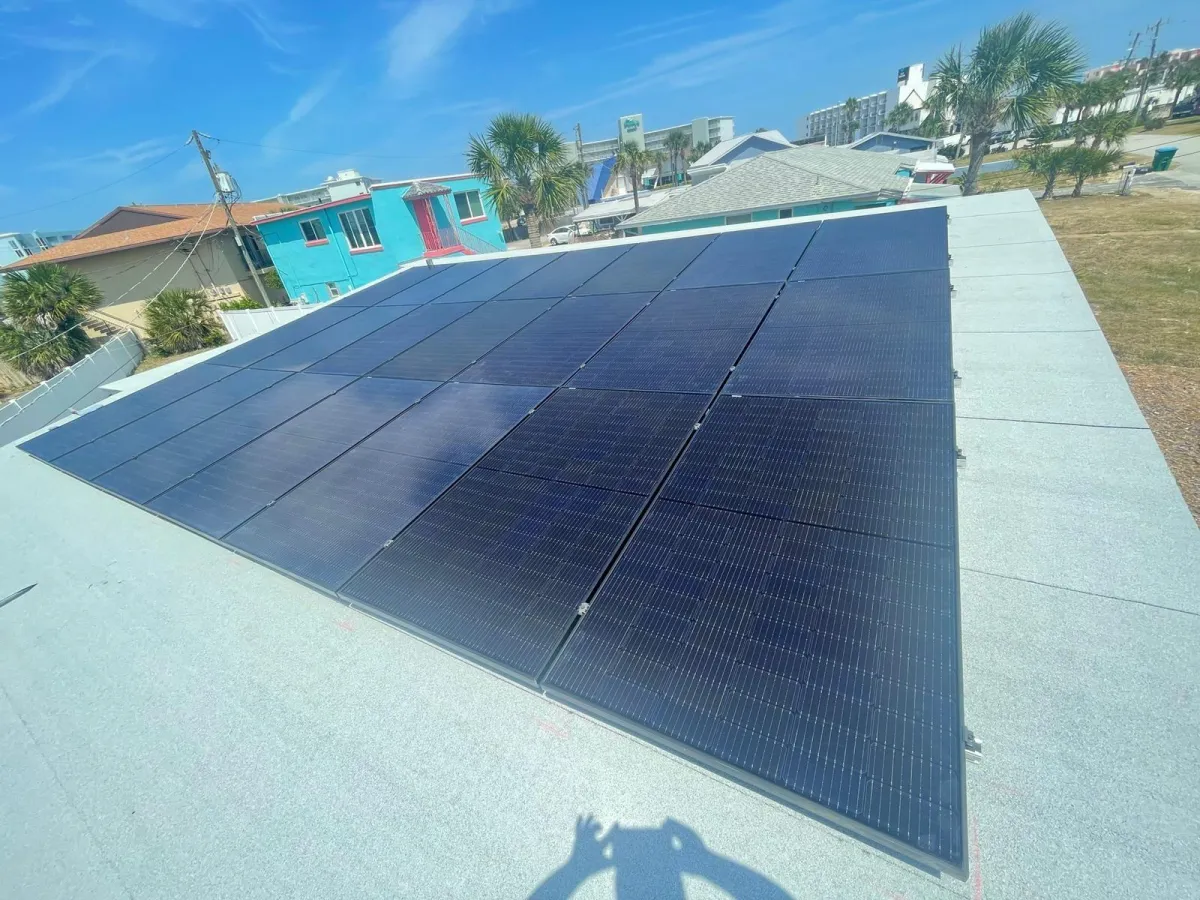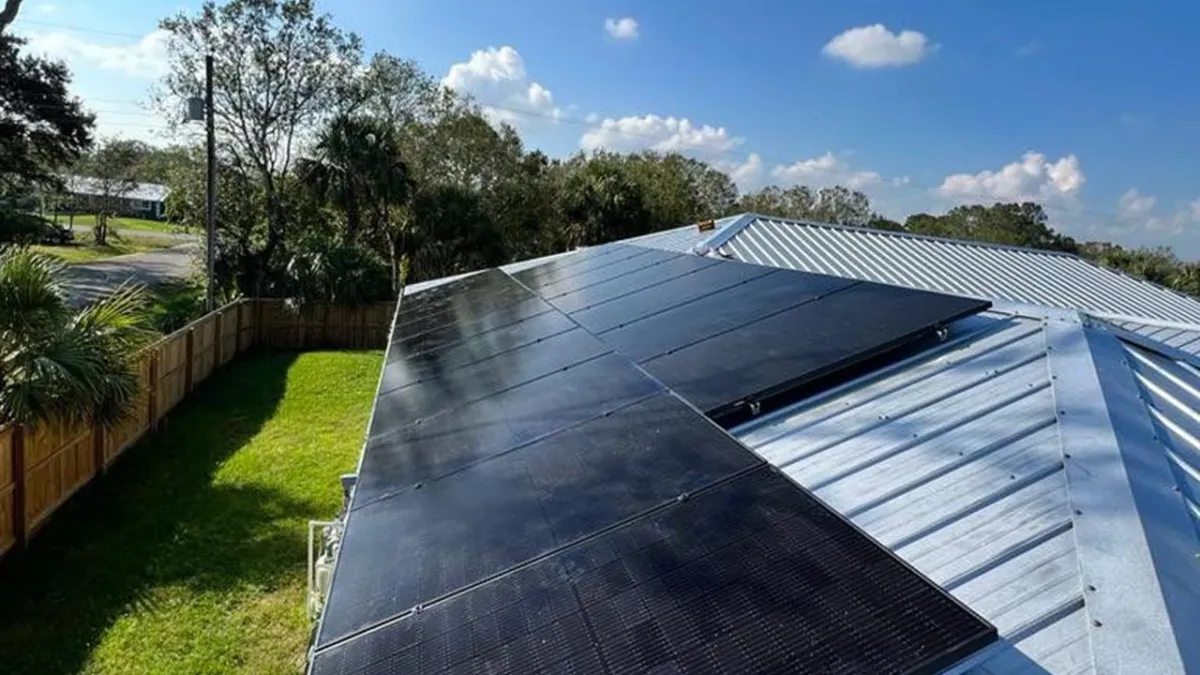Federal Incentives for Solar Energy
Federal Incentives for Solar Energy
Recently, the U.S. Government approved the "2022 Inflation Reduction Act," aiming to tackle the increasing inflation rates by endorsing eco-friendly practices. The act promotes sustainability by offering tax incentives and subsidies for using renewable energy. It encourages individuals and businesses to reduce their carbon footprint, contributing to emission reduction and a healthier environment.
As per the Inflation Reduction Act of 2022, a 30% solar tax credit is available until the end of 2032. This credit decreases to 26% in 2033 and further to 22% for systems installed in 2034. To qualify for the tax credit, your solar panel system must be installed between January 1, 2017, and December 31, 2034. The credit is applicable only to the original installation of new solar equipment that has not been used before. Ownership of the solar system, either through cash purchase or financing, is a prerequisite.
Recently, the U.S. Government approved the "2022 Inflation Reduction Act," aiming to tackle the increasing inflation rates by endorsing eco-friendly practices. The act promotes sustainability by offering tax incentives and subsidies for using renewable energy. It encourages individuals and businesses to reduce their carbon footprint, contributing to emission reduction and a healthier environment.
As per the Inflation Reduction Act of 2022, a 30% solar tax credit is available until the end of 2032. This credit decreases to 26% in 2033 and further to 22% for systems installed in 2034. To qualify for the tax credit, your solar panel system must be installed between January 1, 2017, and December 31, 2034. The credit is applicable only to the original installation of new solar equipment that has not been used before. Ownership of the solar system, either through cash purchase or financing, is a prerequisite.

Main Highlights of the Solar Tax Benefit by the Federal Government
The Inflation Reduction Act of 2022 uses the term "residential clean energy credit" to describe what most people know as the federal solar tax credit.
If you don't utilize all your tax credits in the first year, you have the option to carry them forward to the next year.
You qualify for the solar system tax credit based on when your system started providing electricity for your home.
It's necessary to acquire the solar system outright, not through leasing, and it has to be approved as operational by a city inspector.
As of January 1, 2023, it's possible to seek a tax credit for battery storage, either as part of your solar system or as a distinct solar electric property.
Claiming the solar tax credit is possible through the completion of IRS Form 5695.
There's no cap on the amount you can request for reimbursement.
If you're looking for a refund, this tax credit doesn't apply.
Main Highlights of the Solar Tax Benefit by the Federal Government
The Inflation Reduction Act of 2022 uses the term "residential clean energy credit" to describe what most people know as the federal solar tax credit.
If you don't utilize all your tax credits in the first year, you have the option to carry them forward to the next year.
You qualify for the solar system tax credit based on when your system started providing electricity for your home.
It's necessary to acquire the solar system outright, not through leasing, and it has to be approved as operational by a city inspector.
As of January 1, 2023, it's possible to seek a tax credit for battery storage, either as part of your solar system or as a distinct solar electric property.
Claiming the solar tax credit is possible through the completion of IRS Form 5695.
There's no cap on the amount you can request for reimbursement.
If you're looking for a refund, this tax credit doesn't apply.


Breaking Down the Meaning of Non-Refundable Tax Credits
A tax credit is like a discount on your taxes – for every dollar of tax credit you get, it's one less dollar you have to pay in taxes. Let's say you owe $1,000 in taxes, but you qualify for a $500 tax credit. That means you only have to pay $500 in taxes. Tax credits can be divided into two types: refundable and non-refundable. Refundable ones can give you money back, even if you don't owe any taxes. Non-refundable ones, on the other hand, only reduce the amount of taxes you owe, and you'll get a refund only up to the amount you owe. So, if you're thinking about the Federal Tax Credit for solar, remember you can use it only if you owe taxes to the federal government; otherwise, you can carry it over to the next year.

Breaking Down the Meaning of Non-Refundable Tax Credits
A tax credit is like a discount on your taxes – for every dollar of tax credit you get, it's one less dollar you have to pay in taxes. Let's say you owe $1,000 in taxes, but you qualify for a $500 tax credit. That means you only have to pay $500 in taxes. Tax credits can be divided into two types: refundable and non-refundable. Refundable ones can give you money back, even if you don't owe any taxes. Non-refundable ones, on the other hand, only reduce the amount of taxes you owe, and you'll get a refund only up to the amount you owe. So, if you're thinking about the Federal Tax Credit for solar, remember you can use it only if you owe taxes to the federal government; otherwise, you can carry it over to the next year.
Understanding How Tax Credits and Tax Rebates Differ in Simple Terms

A tax credit and a tax rebate are types of perks given by the government to cut down on how much individuals or businesses have to pay in taxes. But, they do this in different ways and affect your tax bill differently. When you get a tax rebate, it's like getting a refund check after you've already paid your taxes. It's a percentage of what you owed, and it's meant to put some extra money back in your pocket. For instance, if you owed $1,000 in taxes and qualify for a $100 tax rebate, you'll get a check for $100 after your taxes are sorted out. In simple terms, a tax credit is like a discount on your taxes right away, whereas a tax rebate is more like getting a bonus check after you've paid.
Additional Solar Benefits That Might Affect the National Tax Credit
Discounts Offered by Energy Companies
Generally, subsidies from utility providers won’t be reported on income tax returns. Therefore, if you’ve opted to install solar panels and have received a rebate for it, that amount must be deducted from the system cost before calculating your federal tax credit. Though net metering payments are not exempt from taxes in most states, they shouldn’t impact the eligibility of your tax credit.
State-Level Refunds from the Government
Your federal tax credits are likely to remain unchanged, regardless of any rebates provided by the state government.
State-Based Tax Incentives
While securing a state tax credit for your home's solar energy system won't diminish your federal tax credits, it can influence your taxes indirectly. The key lies in the fact that claiming this credit means you'll be able to deduct a smaller amount from your reported taxable income for state income tax purposes. Consequently, this could lead to an uptick in the federal taxes you're required to pay.
Eco-Friendly Energy Reimbursements
If you sell renewable energy certificates, you may earn taxable income. This income will be included in your total earnings and won't decrease your tax credit.
Additional Solar Benefits That Might Affect the National Tax Credit
Discounts Offered by Energy Companies
Generally, subsidies from utility providers won’t be reported on income tax returns. Therefore, if you’ve opted to install solar panels and have received a rebate for it, that amount must be deducted from the system cost before calculating your federal tax credit. Though net metering payments are not exempt from taxes in most states, they shouldn’t impact the eligibility of your tax credit.
State-Level Refunds from the Government
Your federal tax credits are likely to remain unchanged, regardless of any rebates provided by the state government.
State-Based Tax Incentives
While securing a state tax credit for your home's solar energy system won't diminish your federal tax credits, it can influence your taxes indirectly. The key lies in the fact that claiming this credit means you'll be able to deduct a smaller amount from your reported taxable income for state income tax purposes. Consequently, this could lead to an uptick in the federal taxes you're required to pay.
Eco-Friendly Energy Reimbursements
If you sell renewable energy certificates, you may earn taxable income. This income will be included in your total earnings and won't decrease your tax credit.
Understanding How Tax Credits and Tax Rebates Differ in Simple Terms

A tax credit and a tax rebate are types of perks given by the government to cut down on how much individuals or businesses have to pay in taxes. But, they do this in different ways and affect your tax bill differently. When you get a tax rebate, it's like getting a refund check after you've already paid your taxes. It's a percentage of what you owed, and it's meant to put some extra money back in your pocket. For instance, if you owed $1,000 in taxes and qualify for a $100 tax rebate, you'll get a check for $100 after your taxes are sorted out. In simple terms, a tax credit is like a discount on your taxes right away, whereas a tax rebate is more like getting a bonus check after you've paid.
About
We are licensed, bonded, and insured general contractors committed to providing eco-friendly and cost effective home solutions for Florida residents.
Contact Info
221 NE 44th Street Oakland Park, Florida 33334
Mon - Sat : 09.00 AM - 05.00 PM
888-513-3321
LICENSE NUMBER: EC13013559
Solar System Calculator
© 2023 Empire Solar & Roofing. All Rights Reserved










